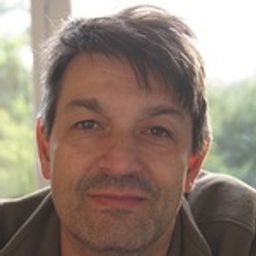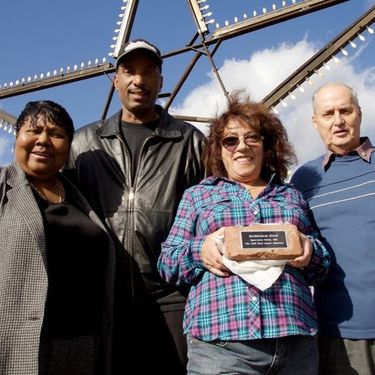
Sessions in which Yves Schoonjans participates
الثّلاثاء 7 يونيو, 2016
Sessions in which Yves Schoonjans attends
الجمعة 3 يونيو, 2016
Welcome addresses and cocktail, followed by the Concordia Signature Event "The Garden of the Grey Nuns". As the opening ceremony and cocktail take place in the former Grey Nuns' Motherhouse, recycled into campus residence and reading rooms by Concordia University, delegates will also have the possibility to discover the video Three Grey Nuns (3 minutes, by Ron Rudin and Phil Lichti. Three Grey Nuns recount their memories of communal life in the Grey Nun’s Motherhouse. Built...
السّبت 4 يونيو, 2016
What if we changed our views on heritage? And if heritage has already changed? While, on the global scene, states maintain their leading role in the mobilization of social and territorial histories, on the local scale, regions, neighbourhoods and parishes have changed. Citizens and communities too: they latch on to heritage to express an unprecedented range of belongings that no law seems to be able to take measures to contain, often to the discontent of...
There is no doubt that the involvement of civil society is a key element in the history of heritage. Working upstream, in line with or against the tide of state recognition, enlightened amateurs or ordinary citizens have invested time and energy in the safeguarding and enhancement of a good, a place or a practice, judged, from their point of view, as irreplaceable or remarkable. It is easy for each country or each region to find an example of a precursor, working alone or in a group, who has ...
Much is being made of the perceived breakdown of the nation-state, which was historically configured as a “container” of heritage formations, adopting and perusing local traditions where possible but oppressing them where deemed unsuitable. Migration is seen as eroding the rigid boundaries of this configuration, potentially liberating identities and heritages in the process. This session addresses the relationship between critical heritage and redefinitions of self, other, community and place...
Most of what we experience as heritage emerges into conscious recognition through a complex mixture of political and ideological filters, including nationalism. In these processes, through a variety of devices (museums, scholarly research, consumer reproduction, etc.), dualistic classifications articulate a powerful hierarchy of value and significance. In particular, the tangible-intangible pair, given legitimacy by such international bodies as UNESCO, reproduces a selective ordering of cul...
الأحد 5 يونيو, 2016
Much is being made of the perceived breakdown of the nation-state, which was historically configured as a “container” of heritage formations, adopting and perusing local traditions where possible but oppressing them where deemed unsuitable. Migration is seen as eroding the rigid boundaries of this configuration, potentially liberating identities and heritages in the process. This session addresses the relationship between critical heritage and redefinitions of self, other, community and place...
With his expression "ceci tuera cela," Hugo established almost two centuries ago a strong link between words and stones as transmission vehicles of human memory. We heritage experts would be inclined to consider stones as more reliable than words, what semiology seems to confirm: stones are clues, and clues are, according to Roland Barthes, tangible proofs of “what has been.” But the inspector Columbo has often shown how we can play with these clues, and Umberto Eco would easily forgive us th...
"What does heritage change?" is a multifaceted question to which the answer(s) are in primary respects related to real-life negotiations among different groups of citizens, cultures, races, ethnic groups, sexual identities, and social classes about received, official and/or widely accepted or accomodated intangible attributes, cultural traditions, historic monuments, buildings, and other transmitted or revived historical legacies. Heritage designated by and for whom, for what motivations, an...
Directed by Tom Fassaert and presented by Marc Jacobs. ___ Doel, a Belgian village near the Dutch border, is disappearing quickly and deliberately. Not because of the four old nuclear reactors on its territory, but because the Flemish government decided that the village might block projects for new docks for the Antwerp harbour, plans developed since the 1960s. In the 21st century this process of officially encouraged depopulation is coming to an end: 2500 inhabitants i...
الإثنين 6 يونيو, 2016
The Manifesto of the Association for Critical Heritage Studies (2011) argues for a more critical approach to heritage: heritage from below, writ large, in service of society. The integration of heritage and museum studies with those of community, development, memory, planning, public history and tourism is urged in the Manifesto, as is opening up to other disciplinary traditions such as anthropology, political science and sociology, for dialogue and collaboration on external research and poli...
Cities are growingly being faced by social, economic, cultural and environmental challenges imposing health and social risks. Rapid urbanization, population growth, climate change are only some of the major global challenges that a 21st century city needs to respond to. The current challenging global environment has led to the development of new approaches to the concept of "sustainable city" a city that caters for current and future generation. For instance, the idea of smart city (a city th...
Le patrimoine fait aujourd’hui l’objet d’attentions autant que d’agressions et de destructions. Cela peut s’expliquer par les difficultés de son identification ou de sa conservation. Cela peut plus profondément s’expliquer parce que, dès le départ, il célébre un événement ou conserve une mémoire qui peut être ou devenir une source de dissenssions et de conflits politiques. Enfin, sa reconnaissance suscite des gains économiques pour les uns mais des pertes pour les autres. Mais peut-être...
Directed by William Shewbridge and Michelle Stefano USA; 35 mins Presented by Michelle Stefano ___ After 125 years of operation, the Sparrows Point Steel Mill (Baltimore, Maryland) finally closed its doors in 2012. The film, “Mill Stories”, examines the importance of the mill from the perspectives of former workers and community members while connecting their story to the larger narrative of industrial boom and bust. The film seeks to amplify the voices of forme...
الثّلاثاء 7 يونيو, 2016
Cities are growingly being faced by social, economic, cultural and environmental challenges imposing health and social risks. Rapid urbanization, population growth, climate change are only some of the major global challenges that a 21st century city needs to respond to. The current challenging global environment has led to the development of new approaches to the concept of "sustainable city" a city that caters for current and future generation. For instance, the idea of smart city (a city th...










